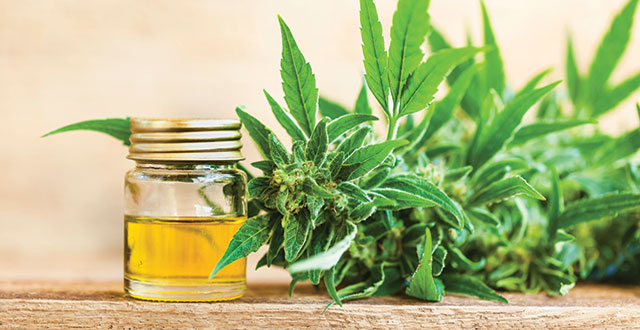While the Trump Administration has deregulated right and left — for instance, allowing polluters to go hog wild — the Food and Drug Administration isn’t effing around when it comes to cracking down on companies selling supposed cures for the COVID-19 virus. Several of those targeted companies make CBD.
There is zero evidence that CBD (cannabidiol, a component of the cannabis plant that doesn’t get you high but appears to have some medicinal properties) can “cure” COVID-19 or even ameliorate any of the symptoms. As recounted in last week’s cover story, lots of charlatans and crazies on social media have been making such claims. Former NFL player Kyle Turley supposedly gave up his stakes in a couple of cannabis business after getting a warning letter. He did that, he said, so he could keep making the loony claims on social media. Priorities.
But there were plenty of others that, lacking any celebrity star power, didn’t get nearly the same level of attention for coming under the government’s gaze. For instance, an outfit called Indigo Naturals, based in Carmel-by-the-Sea, got a letter from the feds on April 6 that read in part: “The FDA has observed that your website offers cannabidiol (CBD) products for sale in the United States and that these products are intended to mitigate, prevent, treat, diagnose, or cure COVID-19.”
The letter quoted a claim from the company’s Web site: “There’s so much worry and panic today about COVID19/Coronavirus. We should not panic but take some extra care of ourselves to boost our immune systems. … Read our new blog post about how CBD and natural supplements can boost our immune system.”
That claim and several others are now gone from the site. On its Twitter page, which has eight followers, the company no longer makes claims about CBD at all, but is now sharing its enthusiasm for hydroxylchloroquine, which Donald Trump and some of his supporters have been promoting as a potential cure for the virus, despite the fact that there is as much hard evidence as there is for CBD’s virus-killing powers: zero. “Learn why hydroxylchloroquine could be a total game changer!” the company tweeted, along with the hashtag “#realDonaldTrump.”
Native Roots Hemp, based in Wisconsin, got a warning letter that quoted one of the company’s blog posts with the headline, “Don’t Fear the #CoronaVirus FIGHT it with us! Soap, immune boosting oils & more!” That post has been removed, along with whatever other claims the company might have made about CBD and COVID.
Another letter recipient, CBD Online Store, based in Laguna Hills, tried the old “just asking questions” ploy. For instance, it had said on its Facebook page: “Can CBD help with Corona Virus? Possibly! But one thing is for sure, it will help you relax when everyone else is panicking.”
Even the latter claim is not “for sure,” but there’s a lot more evidence for CBD’s calming effects than there is for its COVID-curing powers. CBD Online Store got its warning letter on April 7. On April 10, it posted a video on its Facebook page about CBD’s “anti-inflammatory” and immune-boosting properties, prefacing it with this statement: “With all that is going on with this pandemic, we have to be careful what we say about CBD and the immune system, so we will preface this article with this: ‘All the statements on this site have not been evaluated by the FDA, nor are they intended to diagnose, treat, cure or prevent any disease.’”
I’ve talked to tons of people in the CBD business, including lawyers and marketing consultants. All of the legit ones follow a simple rule: don’t make any health claims at all, lest you draw the attention, and ire, of government officials who can put you out of business.
A couple of years ago, I talked to Daniel Shortt, a lawyer with Harris Bricken, one of the country’s leading cannabis-focused law firms. He told me then that enforcing CBD claims was a “low priority” for the FDA. That has clearly changed thanks to the pandemic. But even back then, Shortt said that that when it came to health claims, “the worst cases are ‘CBD cures X disease.’” But, “it doesn’t have to be that explicit to get the attention of the FDA. It will enforce the rules for much less.”



